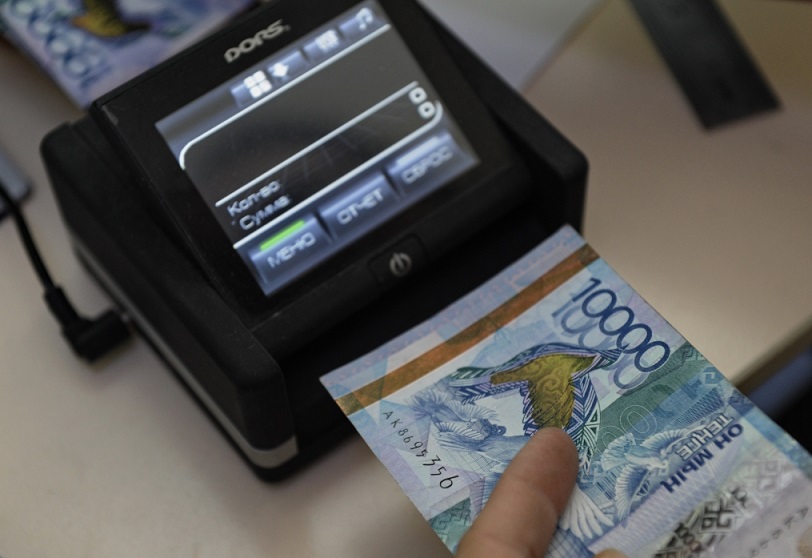Most people have heard of Bitcoin – the mysterious cryptocurrency that has baffled Wall Street and federal regulators alike; but what they have likely not heard about is Kazakhstan’s move to break into the decentralized, cryptocurrency market.
The state-run Astana International Financial Center (AIFC) and Maltese Exante, an investment services company based in Malta, agreed last week to create a digital currency ecosystem in Kazakhstan.
“Astana’s leading financial regulators have already commenced their work and are laying the foundation for Kazakhstan’s fitech-ecosystem. We believe that the AIFC can become an international hub for blockchain operations and the development of the digital assets market is our key priority in the near future," said Kairat Kelimbetov, the Governor of AIFC, according to a press release issued by Exante on October 17.
The new system will be supported by Exante’s blockchain platform known as Stasis.
Blockchain technology allows for digital banking transactions without any centralized management system, such as the Federal Reserve or central bank. Transaction records are distributed among thousands of computers located around the world, and any user can get free access to the blockchain register.
“Blockchain technology has several indisputable advantages: transparency, immutability, relatively fast transactions, and reduced cost,” said Gregory Klumov, Co-founder and CEO of Stasis.
Cryptocurrencies have experienced sharp growth in recent years. Their market capitalization is up by 7.5 times, and trading volumes are up by 18.5 times during the first nine months of this year.
As digital technologies have gained in popularity over the last decade, the banking sector has proven to be no exception. While some countries, like Bangladesh and Bolivia, are opposed to the use of digital money, some are rushing to create their own digital assets markets.
Kazakhstan is not the first country to show interest in its own cryptocurrency, however. Estonia announced in August its intention to launch “estcoin,” while Japan unveiled its plans for “J-coin” last month.
Astana has big plans for developing further what is Central Asia’s largest economy. A $446 million state-wide plan known as “Digital Kazakhstan” puts digital technologies as the underpinning of financial development. Since June 2017, the National Bank of Kazakhstan has been working on preparing a new version of the law “On Currency Regulation and Currency Control,” which will contain norms that determine the status of transactions using digital money.
Exante and the AIFC have not announced when the technology will go public. Draft rules and regulations regarding digital assets are expected to be released in the coming weeks.
Some believe that cryptocurrencies are worrisome because payments are extremely difficult to track, and nothing underpins the money’s value. Transactions are negotiated between buyers and sellers who may not even know each other’s names, while banks and payment systems do not record any personal data.
“Cryptocurrencies are a financial instrument backed by nothing, which makes them highly speculative. Financial authorities’ concerns over cryptocurrency are absolutely understandable,” Farkhad Amirbekov, a Baku-based economic expert and former General Manager of the Baku Interbank Currency Exchange, told Caspian News.
Waves Platform, an open-source blockchain startup, tracks the popularity of virtual-, or crypto-, currency. Almost 50 percent of their use lies with consumers in America continent, while European countries account for 33 percent. Asia makes up about 10 percent of the market, and Oceania just three percent. The lowest usage of cryptocurrency is in Africa, where only 1.5 percent of the population uses the banking method.
“Certainly, the issuance of cryptocurrencies and e-money represents a new paradigm for the development of the world economy,” Amirbekov said.







 Russian peacekeeping forces, deployed in the Karabakh (Garabagh) region of Azerbaijan since 2020, have commenced their withdrawal from the area.
Russian peacekeeping forces, deployed in the Karabakh (Garabagh) region of Azerbaijan since 2020, have commenced their withdrawal from the area.
 Iran's senior military leaders described the drone and missile attack on Israel on April 14 night as “successful".
Iran's senior military leaders described the drone and missile attack on Israel on April 14 night as “successful".
 Azerbaijan officially unveiled the logo for the upcoming 29th session of the Conference of the Parties to the United Nations Framework Convention o...
Azerbaijan officially unveiled the logo for the upcoming 29th session of the Conference of the Parties to the United Nations Framework Convention o...
 Iranian President Ebrahim Raisi warned Israel that it would face a "real and extensive" response if it makes any "mistake" following Tehran’s missi...
Iranian President Ebrahim Raisi warned Israel that it would face a "real and extensive" response if it makes any "mistake" following Tehran’s missi...



